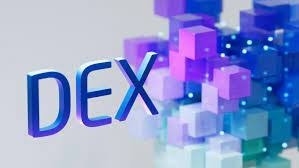The Future of Decentralized Exchanges: Pioneering a New Era in Trading
Decentralized exchanges (DEXs) have emerged as a transformative force in the world of cryptocurrency trading, offering users greater autonomy, security, and transparency compared to their centralized counterparts. As we look ahead, the future of decentralized exchanges holds immense promise, with innovations poised to revolutionize the way we trade digital assets.
Empowering Users:
One of the defining features of decentralized exchanges is their commitment to empowering users. By eliminating the need for intermediaries and custodial services, DEXs provide individuals with direct control over their funds, ensuring greater security and privacy. This shift towards self-custody not only reduces the risk of hacking and theft but also fosters a culture of financial sovereignty and independence.
Liquidity and Market Depth:
In the past, decentralized exchanges struggled to compete with centralized exchanges in terms of liquidity and market depth. However, recent advancements in decentralized finance (DeFi) have led to the emergence of liquidity protocols and automated market makers (AMMs) that enhance liquidity on DEXs. As a result, decentralized exchanges are becoming increasingly competitive, offering users access to deeper order books and tighter spreads.
Cross-Chain Compatibility:
Interoperability is another area where decentralized exchanges are making significant strides. With the rise of cross-chain technologies such as atomic swaps and interoperability protocols, DEXs are no longer limited to a single blockchain network. Instead, users can trade assets across different blockchains seamlessly, unlocking new opportunities for portfolio diversification and asset allocation.
Regulatory Considerations:
As decentralized exchanges continue to gain traction, regulators around the world are paying closer attention to their operations. While the decentralized nature of DEXs presents challenges for regulatory oversight, it also offers opportunities for innovation in compliance and transparency. By implementing robust Know Your Customer (KYC) and Anti-Money Laundering (AML) procedures, DEXs can mitigate regulatory risks and build trust with users and regulators alike.
The Role of Governance:
Governance is another key aspect of the future of decentralized exchanges. As DEXs transition towards more community-driven models, governance mechanisms such as decentralized autonomous organizations (DAOs) are becoming increasingly prevalent. These DAOs enable users to participate in decision-making processes, vote on protocol upgrades, and shape the future direction of the exchange.
Conclusion:
In conclusion, the future of decentralized exchanges is bright, with innovations in liquidity, interoperability, regulation, and governance paving the way for a new era in trading. As DEXs continue to evolve and mature, they have the potential to democratize access to financial markets, promote financial inclusion, and empower individuals worldwide. With user-centric design principles and a commitment to decentralization, decentralized exchanges are poised to revolutionize the way we trade digital assets, ushering in a new era of financial innovation and opportunity.
